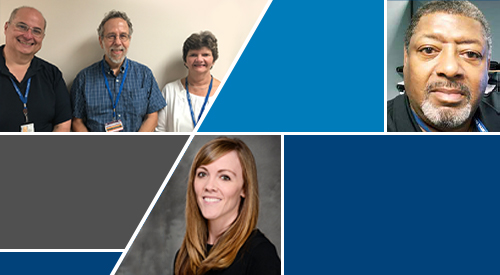Are you struggling with sobriety? Are traditional treatment approaches no longer working for you? If so, contingency management (CM) might be the answer.
CM is an evidence-based practice that promotes healthy behavior through positive reinforcement, such as giving rewards for abstaining from an unhealthy behavior. CM is based on the principle that a behavior will increase if it is followed by a reward. The Philadelphia Center of Excellence in Substance Addiction Treatment and Education (CESATE) sponsors the use of CM in helping Veterans stop taking drugs.
How does CM work?
CM objectively and frequently measures the target behavior — abstaining from substance use — and provides immediate and desirable rewards when the target behavior occurs. In 12-week sessions, participants actively engage in treatment and reap multiple benefits from a life of sobriety.
For example, the prize/fishbowl CM method allows Veterans to draw slips of paper from a fishbowl after testing negative in a urine toxicology test. Prizes on the slips of paper vary in scope and size, from a simple note saying “Good job!” to a small prize of $1 or a jumbo prize of $100. Not every drawing from the fishbowl results in a monetary prize, but when it does, Veterans have a tangible reward to celebrate their sobriety. The number of draws starts at one for the first negative sample and increase with consistent abstinence.
Instead of receiving cash prizes, Veterans in CM earn coupons that can be redeemed for merchandise at any Veterans Canteen Service (VCS) retail store, cafeteria or coffee shop. VCS has been a generous supporter of the CESATE’s implementation of CM.
A key tenet of CM’s success is the immediate and increasing reinforcement of abstinence. If CM cannot verify abstinence — for example, when a Veteran tests positive for the targeted drug in a urine toxicology screening — then it offers no prize, and resets to one the number of draws for the next negative test.
Hear from Veterans who participated in CM
Over 100 VA medical centers offer CM to reinforce drug/alcohol abstinence, and over 4,000 patients have gone through the program.
VA clinicians from across the country have seen success in using CM among Veteran participants. One Veteran participant said, “The contingency management program went on for 12 weeks, and within this time period I learned how to live, instead of just exist, which also gave me a chance to plan future goals.”
Another participant said, “I would recommend the contingency management program to any Veteran that is having a difficult time with committing to a drug-free life.”
Benefits of CM to treat substance use disorder
CM is cost-effective and backed by research. And it has the potential to change Veterans’ lives immediately and in the long term. The benefits of CM are not just limited to a few weeks of abstinence in exchange for quick rewards; Veterans reap the mental health benefits of living drug-free. Positive outcomes can include increased stability, motivation and confidence, as well as enhanced relationships with others.
Additional benefits of using CM include:
- Veterans can complete the brief sessions in as little as 6 to 10 minutes.
- Veteran can combine treatment with any other substance use disorder treatment.
- Facilitation by either licensed independent practitioners (LIPs) or non-LIPs
- Endorsement by VHA policy.
- Building a community of support between participants and facilitators.
While decades of scientific research back up the value of this approach, many private-sector hospitals in the United States do not use CM. VA recognizes the benefits of CM and continues to use methods developed by its groundbreaking researchers.
Learn more
To see if the contingency management program is offered at your local VA medical center, contact your community mental health point of contact.
Dr. Dominick DePhilippis is a licensed clinical psychologist with more than 25 years experience as a clinician, researcher and educator. He earned his doctorate in clinical psychology in 1992 from Hahnemann University in Philadelphia. Dr. DePhilippis has co-authored 27 published manuscripts and was the first author of six. Since July 2009, he has served as the education coordinator in the Philadelphia CESTATE.
Topics in this story
More Stories
Watch the Under Secretary for Health and a panel of experts discuss VA Health Connect tele-emergency care.
The 2024 National Veteran Suicide Prevention Annual Report provides the foundation for VA’s suicide prevention programs and initiatives.
Theranostics is a specialized field of nuclear medicine that uses a two-pronged approach to diagnose and treat cancer.







Great information….it;s very useful for me..
visit-http://www.clariwell.in/clinical-research-course-in-pune.html
I have a unique situation I need to discuss if I could be contacted thank you.
Thanks for the information ….For more information visit
http://www.clariwell.in/clinical-research-course-in-pune.html